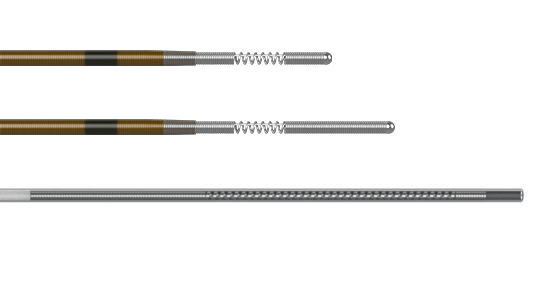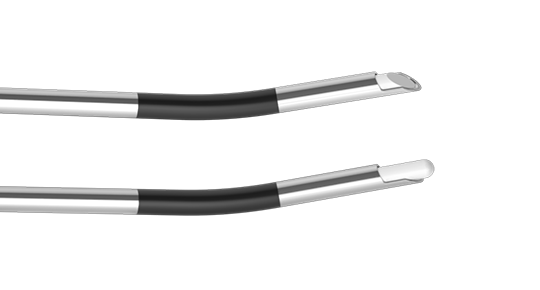Epidural Lysis of Adhesions: What Every Pain Specialist Should Know in 2025
A 2025 review outlines the clinical efficacy of epidural adhesiolysis for patients with persistent spinal pain, including PSPS-T2. It presents Level I evidence, procedural best practices, and safety considerations—highlighting the use of the RX-2 Coudé® Needle for precise ventrolateral access.
An Enhanced Approach to Pain Management
Explore The Racz® Procedure, known as Epidural Lysis of Adhesions, a technique designed to provide relief from radicular pain caused by inflamed and restricted nerve roots.
Devices used for the Racz procedure

Racz Catheters
Epimed’s line of Racz Catheters are designed to deliver site-specific injections without the danger of sharp needles.
Epidural Introducer Needles
Designed to reduce the potential risk of complications including catheter shearing and inadvertent dural puncture while enhancing direct ability.
Learn more about Epidural Introducer Needles: RX-2™ Coudé® (with Blunt Stylet) and RX Coudé® and Straight

Racz Procedure – INDICATIONS
-
Back/neck pain and sciatica (with or without surgery)
-
Chronic low back pain
-
Radiculopathy (mono- or polysegmental)
-
Failed back surgery syndrome
-
Lumbar spinal stenosis
-
Post-laminectomy syndrome
-
Spinal Stenosis
-
Neurogenic claudication
-
Degenerative disc disease
-
Herniated/prolapsed intervertebral disc
-
Epidural scarring
-
Sympathetically independent pain
Racz Procedure Reimbursement
Epidural Lysis of Adhesions is eligible for coverage under all US traditional Medicare plans (MACS). Dedicated CPT codes are available for easier insurance billing. Got questions? Epimed Physician Services offers expert support.
Racz Lab Interventional Pain Workshop!
Sign up for Racz Procedure Training. Get hands-on training and learn more about the Racz Procedure and other Pain Techniques.

